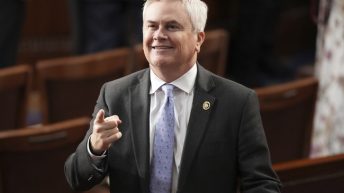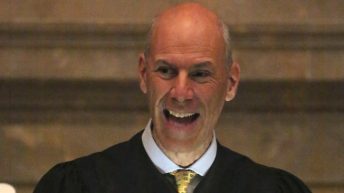The House is set to vote on releasing the Jeffrey Epstein files, and this article examines what those documents might contain, recent revelations about a Democratic lawmaker, and why one Republican congressman’s public posture around the files feels inconsistent and logically strained.
The chatter over the “Epstein files” has been loud for months, but clarity is in short supply. Voters are being promised a blockbuster revelation, yet what often shows up are email chains and paperwork that raise questions without delivering clear, new names or prosecutions. That gap between expectation and reality is the root of the frustration on the right and among independent observers who want real accountability.
One of the more ironic developments is that some of the salacious attention has landed on a Democratic figure rather than a conservative target. Reports surfaced that a House Delegate coordinated with Epstein after his crimes were public and received sizable donations that were not returned. Those facts deserve scrutiny on their own terms, and party labels shouldn’t shield anyone from questions about judgment and impropriety.
Still, suspicion alone is not a substitute for evidence. Over the last year some conservatives have pushed the idea that Epstein was running a worldwide blackmail operation implicating scores of elites. While that’s a serious charge that would justify a full judicial probe, the public record so far has not produced the kind of definitive documentation required to prove a sweeping conspiracy. Reasonable skepticism is healthy, but the case ultimately needs hard proof.
Republican Representative Thomas Massie has been a loud proponent of forcing the files into the open and pressing for full transparency. That position aligns with a demand for accountability, but there’s tension between calling for disclosure and turning the absence of certain names into evidence of a deeper cover-up. That rhetorical move risks moving the debate from fact-finding into speculation.
On television, Massie framed the issue in stark terms, suggesting that the presence or absence of particular names in released materials is the ultimate test of whether a full release has occurred. He also claimed survivors have given names to congressional contacts, implying insiders know more than the public. Those are weighty assertions that, if true, should be followed by public accusations or referrals to prosecutors rather than theatrical claims about hidden files.
MASSIE: Some people have said, ‘Well, how will you know that he’s released the files?’ We will know when rich and powerful men are implicated. So they’ve claimed that they’ve been releasing thousands, tens of thousands of documents to Congress already. But what we’ve discovered is there’s not a single new name in those documents. We know because we have survivors through their lawyers who’ve told us that they have names. We know, they know who’s in those files, and we’ll know if he’s given us a complete release.
That quote highlights the problem: treating a lack of new names as proof of a larger cover-up is a circular argument. If the released records don’t include fresh names, the simplest explanation is often the correct one—there aren’t any more names to find in the materials produced. Leaping from absence to conspiracy is a rhetorical shortcut that substitutes suspicion for evidence.
Another wrinkle is the role of survivors and their attorneys. Massie’s comments suggest survivors have provided identities to investigators, but the chain from private disclosure to public accusation matters. Survivors may choose to keep names confidential for legal or personal reasons, and attorneys may advise against public naming until criminal referrals or safe steps are in place. That reality complicates the demand for immediate public lists.
There’s also a legal dimension people ignore when they turn this into pure theater. Non-disclosure agreements cannot legally be used to conceal criminal activity, and victims can report crimes despite NDAs. If there are names tied to criminal conduct, the proper path is law enforcement and prosecution, not media grandstanding. The goal should be justice, not political scorekeeping.
For Republicans pushing transparency, the consistent stance should be: expose documents, refer credible allegations to prosecutors, and avoid elevating speculation into accusations. If the files contain prosecutable material, law enforcement action should follow swiftly. If they don’t, then the case should not be sustained by innuendo or repeated demands for evidence that doesn’t exist.
Public interest in Epstein’s network is understandable and deserved, but accountability requires more than outrage. It needs evidence, witnesses willing to testify, and a legal process that can turn allegations into convictions when appropriate. Until then, the fight over released documents will continue to feel like a political drama more than a path to justice.





Mʏ ʟᴀsᴛ ᴘᴀʏ ᴄʜᴇᴄᴋ ᴡᴀs 8500 ʙᴜᴄᴋs ᴡᴏʀᴋɪɴɢ 10 ʜᴏᴜʀs ᴀ ᴡᴇᴇᴋ ᴏɴʟɪɴᴇ. My younger brother friend has been averaging 11k ʙᴜᴄᴋs for months now and he works about 22 hours a week. I cant believe how easy it was once I tried it out…….
Tʜɪs ɪs ᴡʜᴀt I ᴅᴏ__________ EarnApp1.Com